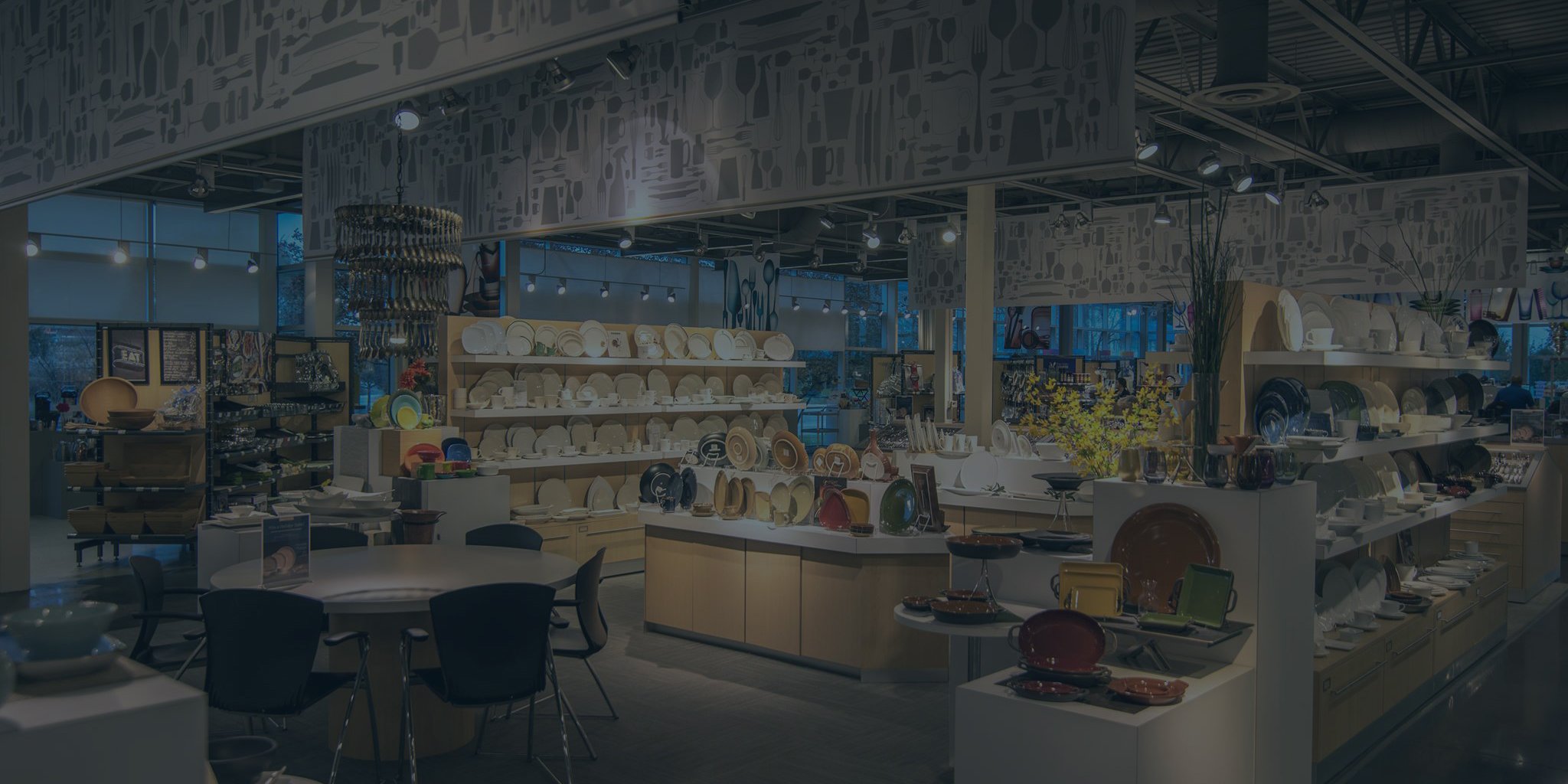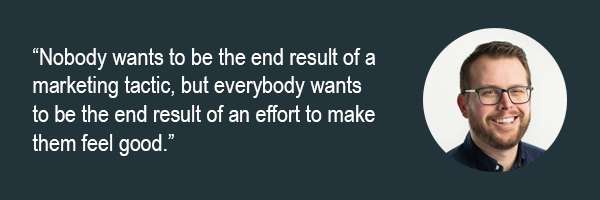Listen to Rob Frost, Principal of Boelter Blue, speak to the importance of your business's service standards, from way the kitchen operates to the cleanliness and friendliness of the waitstaff. Anything that might affect the experience a customer receives helps to increase the number of regulars – here's how.
Want to see what Boelter Blue can do for you? Book a demo now.
Excerpts
Let's jump right in and talk about the importance of overall service standards. It's not uncommon for people to forget some of the details of the meal they were served, but it's rare that they're going to forget a terrible experience.
Rob: It's arguably the most important thing you can do to make sure you get a first time guest to return to your restaurant. The glue that sticks the memory in their brain of the food or the experience or the time they had is that hospitality.
The key to great hospitality is your staff. Your staff has to treat your customer well. They're really the heart and soul of your business. The only way that your staff is going to treat your customer well is if you treat your staff well and you hire good people. Treating your staff with respect [and] giving them all the tools and training they need to succeed is really the very first tenant.If you hire and train great people and you have those qualities yourself, that's going to seep into your service. Amazing hospitality is going to get you referrals, help you attract first-time guests, keep you top of mind with repeat guests.
...
Let's talk about the customers and simple things: getting to know them, remembering their names, maybe taking note of their favorite drink or the meals that they order most frequently. How does that affect customers wanting to come back for repeat visits?
Rob: Identify who your first-time guests are. If you don't know who they are, you can't convert them into a regular. One of the things that successful restaurants do is they flag first time guests and they make sure they treat them special. They get different touchpoints. They might even be put in a program to help entice them to come back.
Even if you don't know your customer, you want them to feel like they know who you are. When they know who you are, they know what they can expect from you and they're more likely to refer you or come back or have a positive experience. You need to get to know what they [want]: which promotions worked, which menu sold, refining the experience. That way you're constantly giving them things that they want and are looking for. Keeping it fresh is always a good thing to do.
...
If done well, a good, solid loyalty program should help drive traffic. But based on how that loyalty program is run, is that also going to result in an increase in the number of regulars?
Rob: Let's just talk about loyalty programs in general, quickly. Really, they're only good for two things: more frequent visits and more profitable visits. [Customers] don't want to feel like they're being coerced or sold or getting a cheap end experience. No one really wants to be told to do anything.
They want to know what you're going to do for them and they want to feel good about it. They want to feel excited or special or comforted about your business. That's what your loyalty program should accomplish. The end result of that is more visits or more profitable visits. But if you don't do those things, your loyalty program just won't work.
That's the first end of the equation. The second end is you, the operator. You still need to be able to make money and you still need to do that while handling all the other duties you're handling, operating that restaurant. Which is a massive amount, as we know, a lot of things that you're responsible for.
The first battle with a loyalty program is staying top of mind: making sure when they're thinking about time to eat or drink, they're thinking about you. That's one of the reasons we use mobile apps quite a bit to deliver the loyalty program. You end up with that digital real estate on somebody's phone.
Whatever you're doing, you want to do it in the context of upgrades, early access, secret menus, selective discounts and make it available on their phone. The only thing they're never without, probably not even when they're sleeping. It's always there.
If it's on their phone, you want to be able to message them and then you want that customer to be able to select what they hear from you as a business. Email marketing is one way to message people. Text message marketing is one way to message people. But the idea of a loyalty program, part of that program should be that customer being able to selectively pick what they want to be loyal about – a choose your own adventure.
...
It doesn't matter if it's a craft brewery or if it's a restaurant, you're going to have a certain level of ambiance to engage with the customer. How much of a role does this play, whether or not a first-time guest makes a decision to visit a second, third, fourth time?
Rob: It's big. It's very big. And the ambiance of your restaurant is the people that are in it. Of course it has to be clean and it has to reflect your style of food and beverage. It has to be something that's attractive and maybe even exciting to sit in. It's got to be a place that's comfortable. But really it's about the people. Make sure that you're hiring those people that create that type of environment.
You don't want to have too much of a radical departure from what people expect or what they're accustomed to. That can work against you. If it's well calculated, that can absolutely work. But the most important thing there is to be authentic to who you are. If you look at a community and you identify a genuine gap in what's being provided to that community, and that's what you're good at, then absolutely, that doesn't matter.
People can sniff out a phony in a heartbeat. Businesses that aren't passionate about what they do, whatever they claim to do best, is like poison for your staff. It's a turn off for your customers, and that filters into the ambiance.
Part of the ambience is giving them something they'll remember, an experience that they'll talk about. It's much more attractive to go to a place that does a few things well instead of claiming to do 25 things well. The excellence of those few things can stick in your mind and trigger a second visit and really allow you to naturally stand out from the competition.
[The] third factor that is there is technology. Using it to develop that relationship with the customer and to offer them a portal where they can choose their own adventure at your restaurant right at their fingertips.Something like a waitlist feature could be the difference in four to five tables per night for a restaurant on a Friday or a Saturday. If I'm a customer and I can open up my phone and immediately see what the wait is, and even if it's a half an hour or 45 minutes, if I can get on the wait lists by clicking a couple buttons in my phone and wait on the couch instead of standing outside your restaurant, I'm much more likely to get on that wait list and come in anyway just because I know to expect.
If it's just four to five tables per night over Fridays and Saturdays, that's roughly a hundred days a year. That could be a difference in $20,000 in sales per year. That's huge. And not only is it huge to your bottom line, but providing that hospitality just makes people feel good.
...
In the last podcast we talked about engaging first time guests through events, through entertainment. Now that we've got those people in the door for the first time, how important is it to continue to maintain a certain level of entertainment for those guests?
Rob: There's a fine line there. People know when you're trying to be authentic or when you're trying to just entertain them. It's important, I think first and foremost, to be involved in your community and do events that make sense for your business. The idea shouldn't be: what can I get out of the event? It should be: what can you and your business add to the event? If you take that approach going into it, that's when word of mouth really starts to take off.
Think about your environment. Make note of what's popular and current: entertainment and pop culture, music and television shows. Recognize what your customers are talking about. The opportunities really are endless, but you have to know your customer. It's just having some creative ideas that center around knowing who your customer is and doing events that cater to them.
How about taking him to the next level: that mythical VIP experience. Is there anything that our restaurant or bar owners should be doing to make their guests feel extra special?
Rob: I sound like a broken record, but it's that hospitality, right? Really it's having a plan. If you don't have a plan, you're going to fail. You've got to have a system in place so your best and most loyal guests are getting the recognition that they deserve. That system can be any number of things, as simple as a great host that recognizes people by their faces. Or having people put their names on a waitlist or having them with a loyalty program or an app, but having a plan. That's number one: identifying who those people are.
Being genuinely happy to see them, being involved in the restaurant from a leadership perspective, is also very important. If you want to cultivate a community of regular VIPs and raving fans, they have to feel like the owner or the manager knows who [they] are and they have to feel like they are getting something extra, even if that's extra attention. Being visible on the floor during busy times and touching those tables is really important.
Whatever program you do, make sure you track them. Make sure that you use the info. You have to treat them special. You can do secret menus or new monthly insider deals. You can even have a leaderboard where your best customers compete for the status of who's the most loyal. That works for some concepts, especially brew pubs. Who orders the most pints or pitchers? It's a different way to do it. That's not going to be a thing that happens at fine dining, but it might be right for a volleyball bar. Things like birthday programs that you can accomplish with technology also help. But really it comes down to the people.
Do you think there's any additional marketing tactics that should be considered to help increase the conversion rate from first-time guest to regular?
Rob: When I hear the phrase marketing tactics, sometimes I cringe because it just sounds like we're trying to sell somebody something they don't want. I call it hospitality. I would call it knowing my customer. I would call it having a plan to delight them. Nobody wants to be the end result of a marketing tactic, but everybody wants to be the end result of an effort to make them feel good.
If you look at marketing to your customer as a way to delight them, make them feel good, give them things they want on demand and easily, give them exciting things, those are the things that we need to be focusing on. It's not a rocket science.
Number one: Food and service has to be right. Without that, nothing else matters.
Number two: Make sure you do at least a few things with excellence and then lean on them. Lean on them in your marketing, lean on them in your communications, lean on them in your attempts to get first-time guests. This is what makes you memorable. Put your most dynamic people in the best places. If you don't have dynamic people, you try to find them or you be the dynamic person. Put that person in front of your guests and do that with excellence.
Number three: Remember, your customers are people and they don't want to be sold or coerced. They just want to know what you're doing for them.
Number four: Have a plan for when that first-time guest walks through the door. What does that first visit look like? What do they order? Who do they talk to? What program do they get entered in? Where do they get tracked? If you need help with any of that and you can talk to somebody like Boelter Blue. Then know what their second visit and third visit looks like. Know what the reason is that they're going to want to come back, and remind them of that reason. Make it easy for your customer to engage with you on their terms.
The last point is: If you're not growing, then you're dying. That's harsh, but it's true. That's the mentality you have to have to keep people coming back. At least, that's the mentality we've seen in successful restaurants. You've got to do the simple things to keep people coming back – new events, new specials, new programs. But again, that makes sense, that's authentic to you and fits in with your message and your business.
So do you think it's true that those customers then ultimately become a champion for that restaurant? Are they going to be more likely, more willing to start talking with their friends and their neighbors and their family members and just talking up the experience that they had and suggesting these locations to them?
Rob: Think about it this way. If I have a chance to take somebody out to dinner, am I going to take him to the place where I'll walk in the door and the manager knows my name and I know the menu and I'm positive the food's going to be good? I know we're going to have a good time and good service. People are going to smile at us. Am I going to tell people about that place? Absolutely, that's what's going to happen.
They're not even going to know they're championing your business. They're just going to know that this is good and I want to be the person to tell other people about good things. It's really that simple, and that's what we see the most successful places doing. There’s no tricks or tactics. It's about making people feel good. And then you're going to get those champions.
Ready to grow your food or beverage business? Get started with Boelter Blue today.

The Boelter Wire is an episodic podcast that focuses on thought-leadership conversations with industry experts and established partners, and is designed to help listeners evolve their business, stay competitive and pursue their passions.
Subscribe to The Boelter Wire here or on Spotify, Google Play, Apple Podcasts or Amazon Music.
.jpg?width=192&name=BLT_Only_Logo_Black%20(19).jpg)





